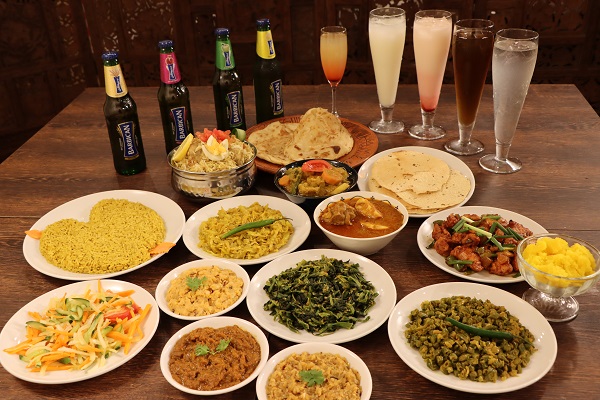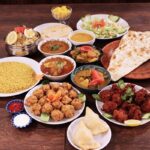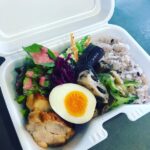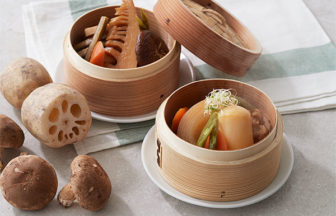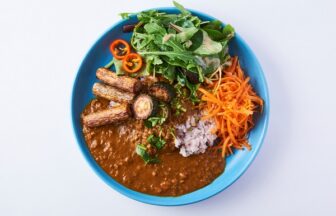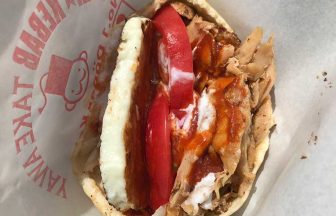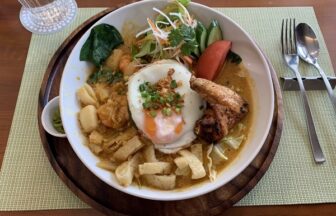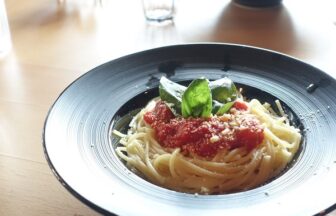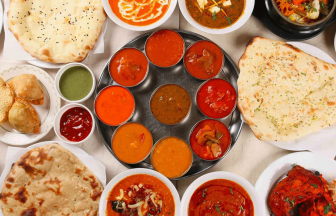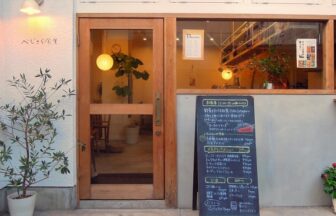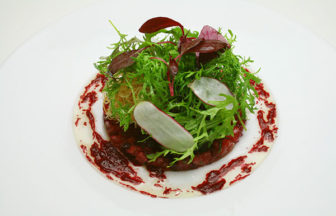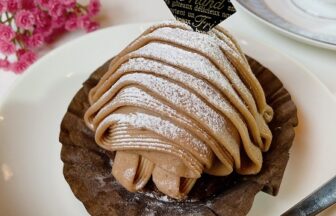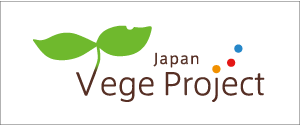Bengali restaurant “Torkari Jimbocho” that relocated in 2020 in Jimbocho, a well-known area for the quality curries
Torkari Jimbocho is a restaurant that specialises in Bengali home cooking and has a branch in Koenji. Torkari Jimbocho is the main restaurant that opened in August 2020, relocating from Nishishinbashi.
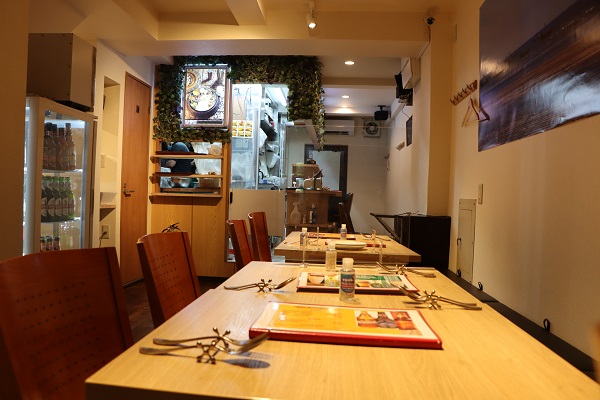
TORKARI JIMBOCHO
The must-try dish is a Dosh-Mishali set that comes with 10 types of side dishes, which is only available at Jimbocho restaurant for1550yen. This satisfying dish consists of the Torkari signature items such as Biriyani, curry, Bhorta, soup, salad, and dessert. Dosh means 10 and Mishali means mix in Bengali.
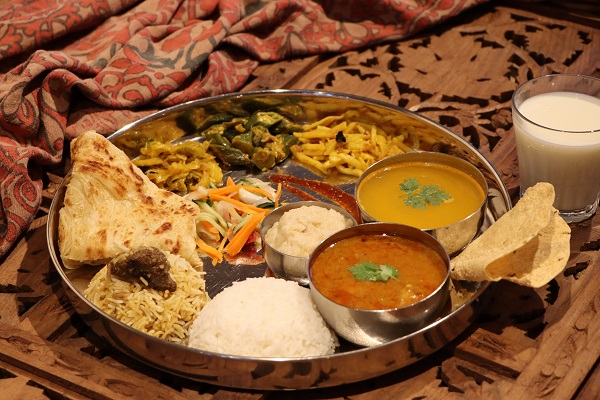
Dosh-Mishali Set
Porota roll have fillings such as vegetables and chicken, wrapped in porta that is a thin bread with layers like a pie. This porota roll set meal is 1000yen.
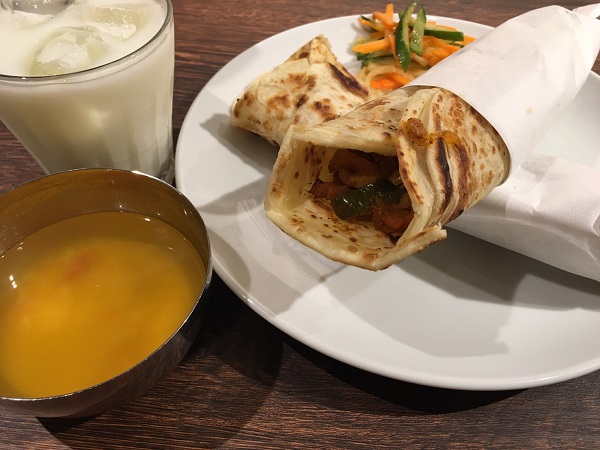
Porota Roll Set
Porota roll is also a perfect option for takeout. All dishes are available for takeout and there are a variety of items that suit your needs, including party sets of tandoori dishes and bento box of curry, bhorta, and bhaji.
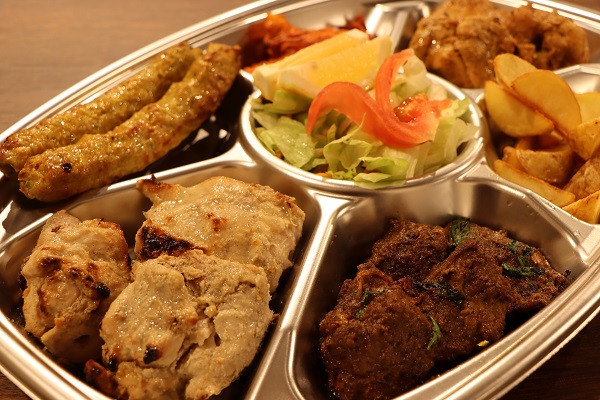
Murga Kabab & Kalo Bhuna
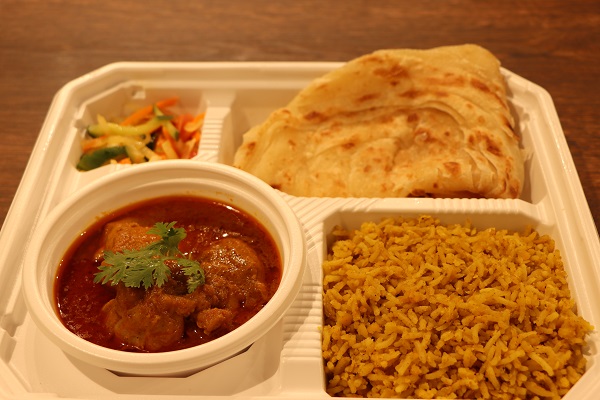
Murga Khichuri Porota
Home cooking of Bengal area/Bangladesh prepared with Halal ingredients
In Torkari, chefs and staff are Muslims from Bengal area. They are so focused on providing dishes cooked with authentic methods and freshly grounded fragrant spices based on the concept of “providing Bengali authentic home cooking”. Here are the signature Bengali dishes.
【Borta & Bhaji set】
This signature Bengali homemade meal is served with side dishes of Borta (mashed food), Bhaji (stir-fried food), and a bean soup. It’s the mustard oil that gives such flagrant flavor, making this spicy and salty dish a perfect match with rice. Vegetarian borta such as potatoes and eggplants are also delicious.
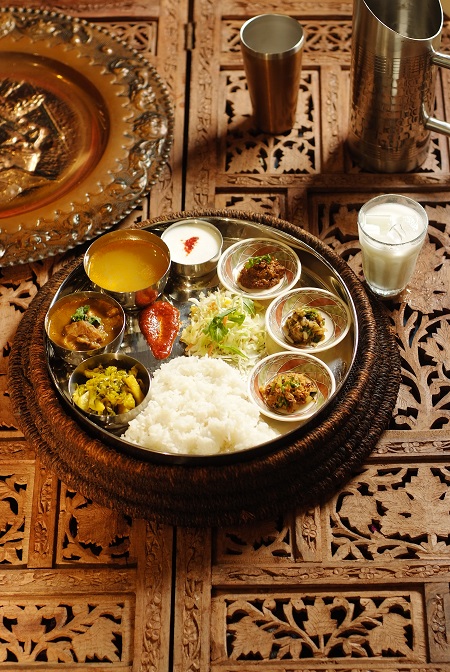
Bhorta Bhaji Set
【Khichuri】
This is khichuri and curry set in the picture. Khichuri is a Bengali dish cooked with beans and basmati rice in a mild flavor, which goes well with curry.
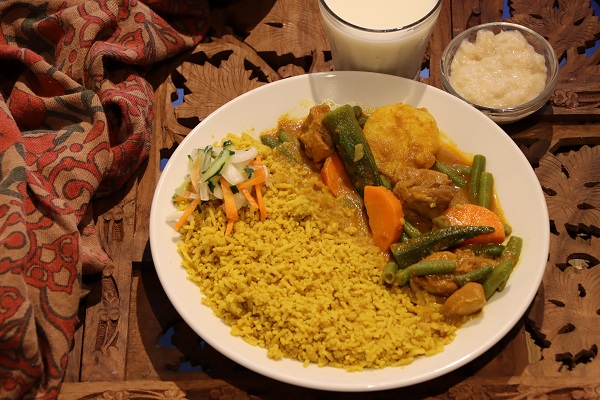
KHICHURI
【Biriyani】
They have chicken and mutton on the menu. In addition, they also have a “special of the day” such as fish and shrimp. Biriyani is a traditional dish prepared for celebrations such as weddings in Muslim culture, considered as a special auspicious dish.
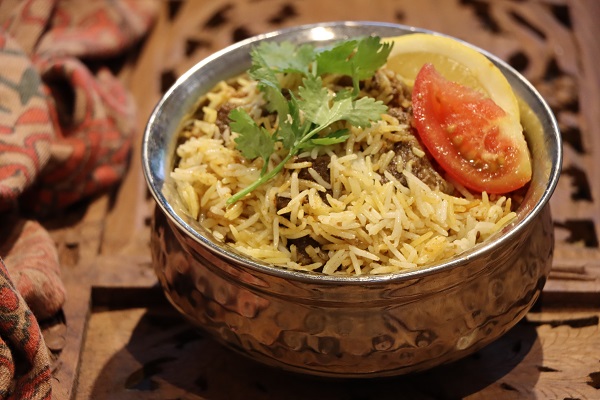
BIRIYANI
Torkari Jimbocho offers all the dishes prepared in Halal style. Alcohol is available such as beers.
Underground room with a projector available for events and meetings and that can also be arranged for Muslims as praying space
Torkari means “curry” in Bengali. The owner who loves curry started this restaurant with feeling “I want to create a restaurant where Muslim people can feel comfortable” and “I want to provide authentic Bengali homemade cuisine made by staff and chefs from the area (Bangladesh and West Bengal province). ”There is an underground space at Jimbo restaurant, available for rent for a variety types of events.
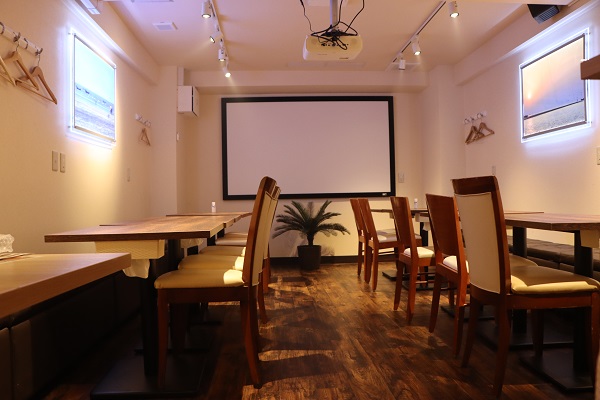
B1F
Torkari offers beautiful dishes prepared in Haral style with freshly grounded fragrant spices and free from nuts, crabs, and artificial seasonings. Please come and try their authentic Bengali/Bangladesh home cooking!
Supervisor / Recommender

- Halal Supervisor and Foreigner Food Coordinator (Cooking, Consulting, Public Relations)
-
Click here for introduction
I currently work as an editor, but my previous job was as a chef, with many years of experience working in hospitals, restaurants, and the food service industry. Looking back, I think my connection to halal may have already been there.
Decades ago, I once worked in a cafeteria at an auction venue. Over 60% of the visitors were foreigners. Many Muslims were present, and the venue had a mosque-like prayer space. I remember being frequently asked questions about whether the meat was halal and what kind of meat it was. At certain times, the cafeteria would become as lively as a festival. The Indian restaurant next door would generously serve free biryani, curry, and sweet drinks to everyone who came. Over 100 people, including people wearing bright red turbans, galabeyas, and traditional attire, gathered in the cafeteria, all sitting around the same table and enjoying a truly enjoyable time. Looking back, it was iftar, the end of fasting, and I understand the significance of sharing, but at the time I was ignorant of halal and Islam, and didn't even consider how to respond. They only ate the curry made by the Indians in the restaurant. As I studied halal, I realized, "I wanted to eat Japanese food, but I couldn't." I regret not doing anything even though there was something I could have done.
If only it didn't contain pork! If only it didn't contain wheat or buckwheat! I could eat it... Food insecurity is different for each person.
That's why I think it's important to learn about the differences in culture, religion, and lifestyle that underlie it, and to create an environment where everyone can enjoy delicious meals in comfort.
The desire for delicious, safe, and secure food is universal. The times are calling for people to live in new ways that transcend borders and religions. I hope that halal can be a gateway to eliminating food insecurity, contributing even in some small way to a society where people can coexist and prosper with more liberal thinking, and to global harmony beyond.
Latest entries
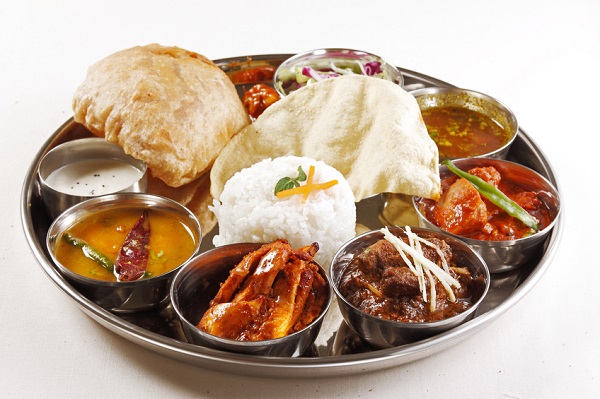 Tokyo2023年11月4日Dakshin South Indian Restaurant Otemachi Branch
Tokyo2023年11月4日Dakshin South Indian Restaurant Otemachi Branch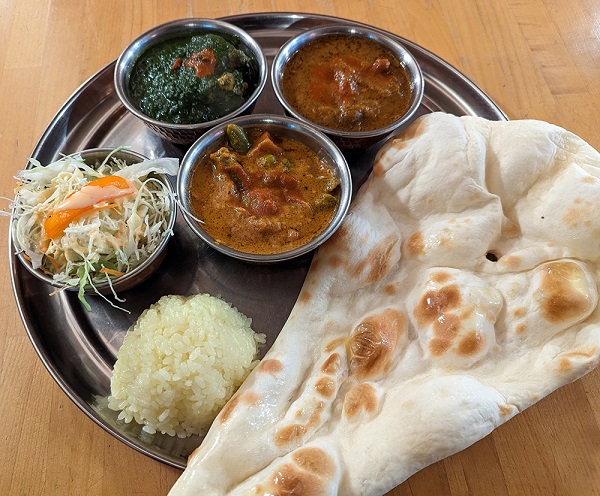 Tokyo2023年10月23日Gandhi Mahal
Tokyo2023年10月23日Gandhi Mahal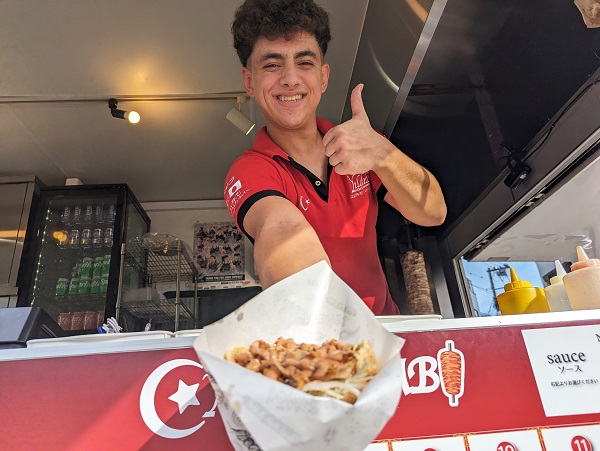 Tokyo2023年10月23日Yıldız KEBAB
Tokyo2023年10月23日Yıldız KEBAB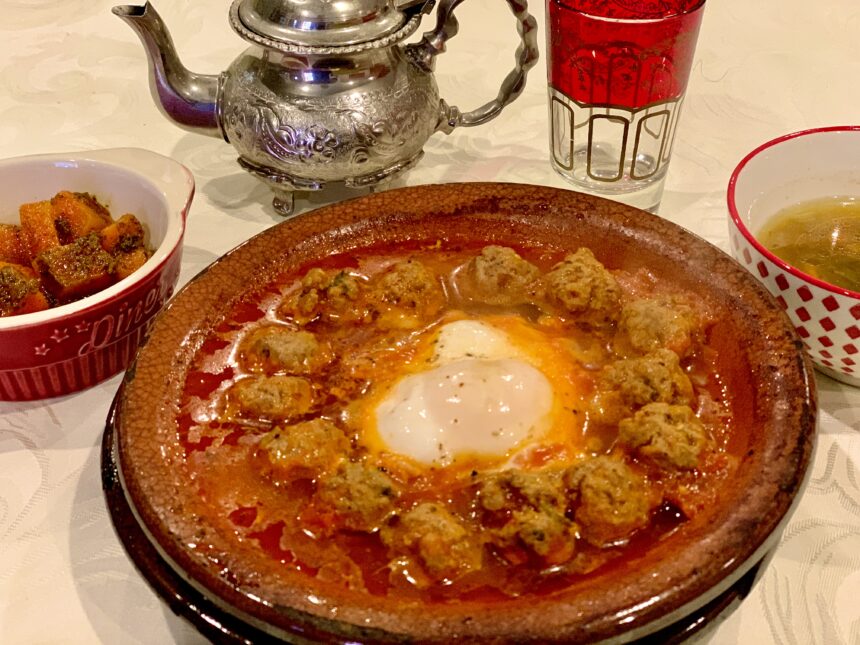 Tokyo2023年10月4日Restaurant Morocco
Tokyo2023年10月4日Restaurant Morocco

